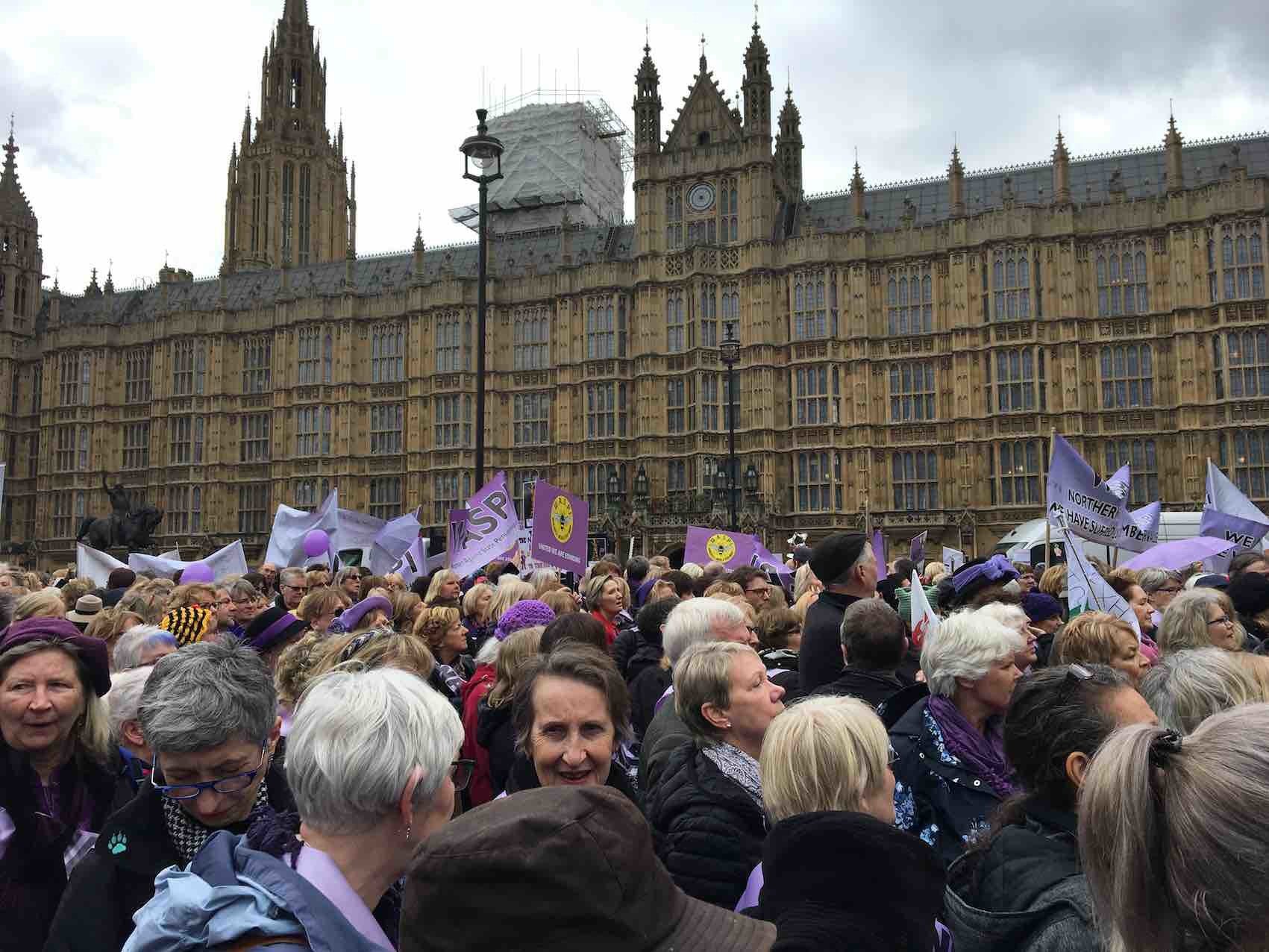Why are 1950s women so angry about the state pension age change?
Analysis: As thousands of women in their fifties and sixties prepare to march against changes to their state pension age, May Bulman asks what they are hoping to achieve


Thousands of women in their fifties and sixties are getting ready to march across London to voice their frustration over changes to the female state pension age. Their anger has, until now, gone largely unheard – but the widespread impact is beginning to show.
On the face of it, increasing the pension age for women from 60 to 66 – to the same age as men – is, as the government proclaims, “a long-overdue move towards gender equality”. But what is infuriating for so many is the fact that the plans were pushed forward in 2011 with little advance notice for those affected.
Indeed, former pensions minister Baroness Ros Altmann, who resigned over the issue in 2016, revealed last week that warnings which predicted the changes would leave thousands in hardship went ignored “at all levels of government”.
In recent weeks, The Independent has received a flood of correspondence from desperate women who have fallen into destitution after discovering, in the final years or months of their fifties, that the pension they thought they would be getting at 60 is not there after all – and they have been unable to do anything about it.
Many had carefully planned how they were going to manage until their state pension started, only to find that their savings were going to run out and they would have nothing to live on. Some had retired in the belief that they had a year to wait, and are now struggling to find work, or working in jobs that they aren’t physically fit to do. And as a recent survey revealed, some women have been driven to self-harm and suicidal thoughts as a result of the pension reform.
Their struggle has now turned into mass protest. The march on Wednesday, co-organised by campaign groups BackTo60 and Women Against State Pension Inequality (Waspi), will see demonstrators walk from Hyde Park to Parliament Square in a bid to “set the record straight for any doubters” and create a “pressure point” for government.
We realise we want gender equality, but there is nothing fair about having no notification that your pension age is going to be deferred
The protesters, who are supported by the Equality and Human Rights Commission (EHRC), emphasise that they are not asking ministers to abandon the female state pension age entirely. Rather, they argue that the cohort of women who had it sprung upon them with inadequate warning should see their pension age taken back down to 60 – so they can continue their lives as planned.
Yvette Greenway, one of the lead figures in the campaign, says: “We realise we want gender equality, but it is the way the government has put these processes in place to reach that equality. There is nothing fair about having no notification that your pension age is going to be deferred.”
BackTo60 recently lodged a judicial review, seeking to force the government to reverse its decision. The application is expected to argue that the pension policy implemented by successive governments is “a gross injustice and is discriminatory”. The pensions minister recently denied the DWP had failed to provide adequate and timely information relating to the increase in the state pension age.
Whether or not the protest will prompt any attempt to placate the thousands of women affected remains to be seen.
Join our commenting forum
Join thought-provoking conversations, follow other Independent readers and see their replies
Comments
Bookmark popover
Removed from bookmarks